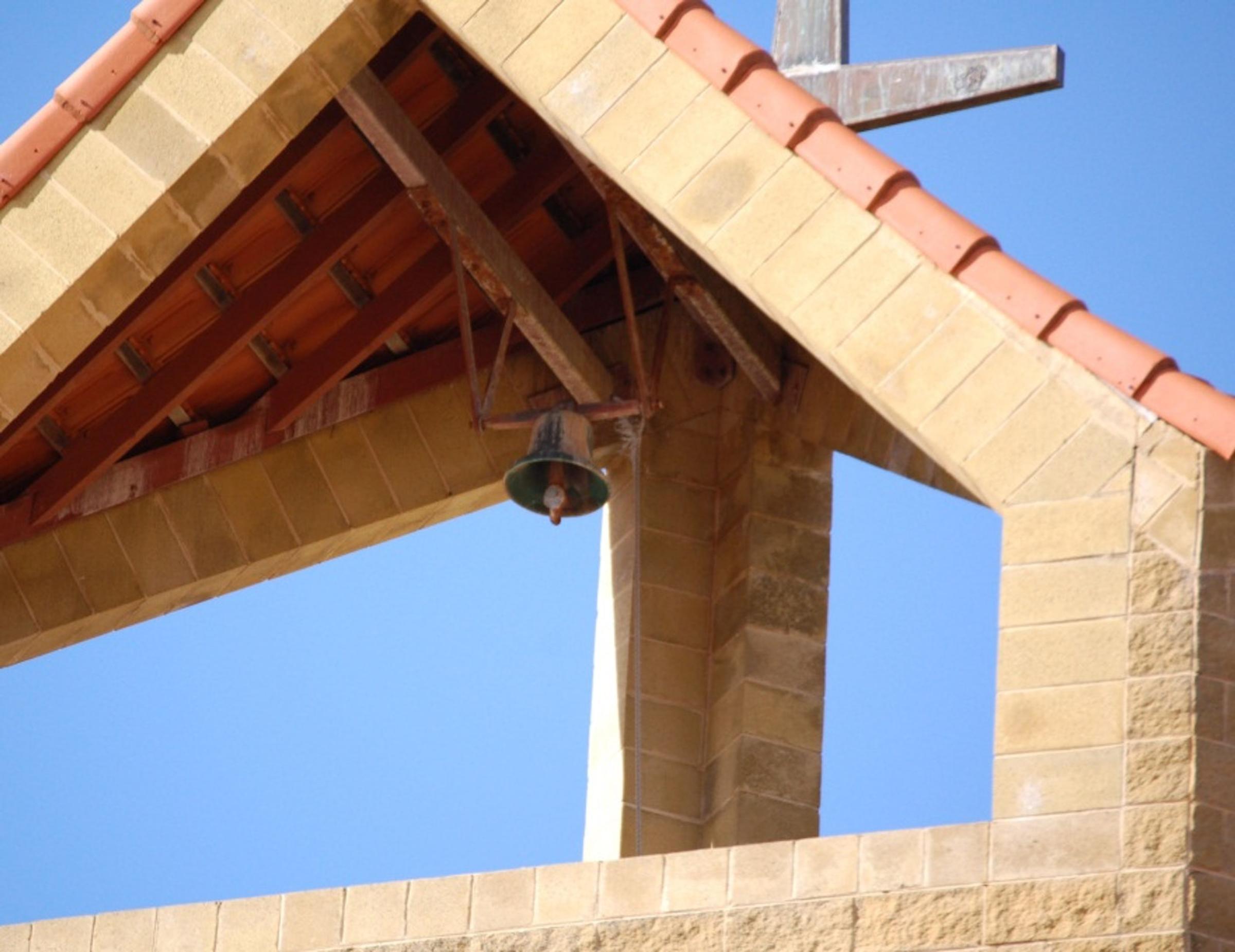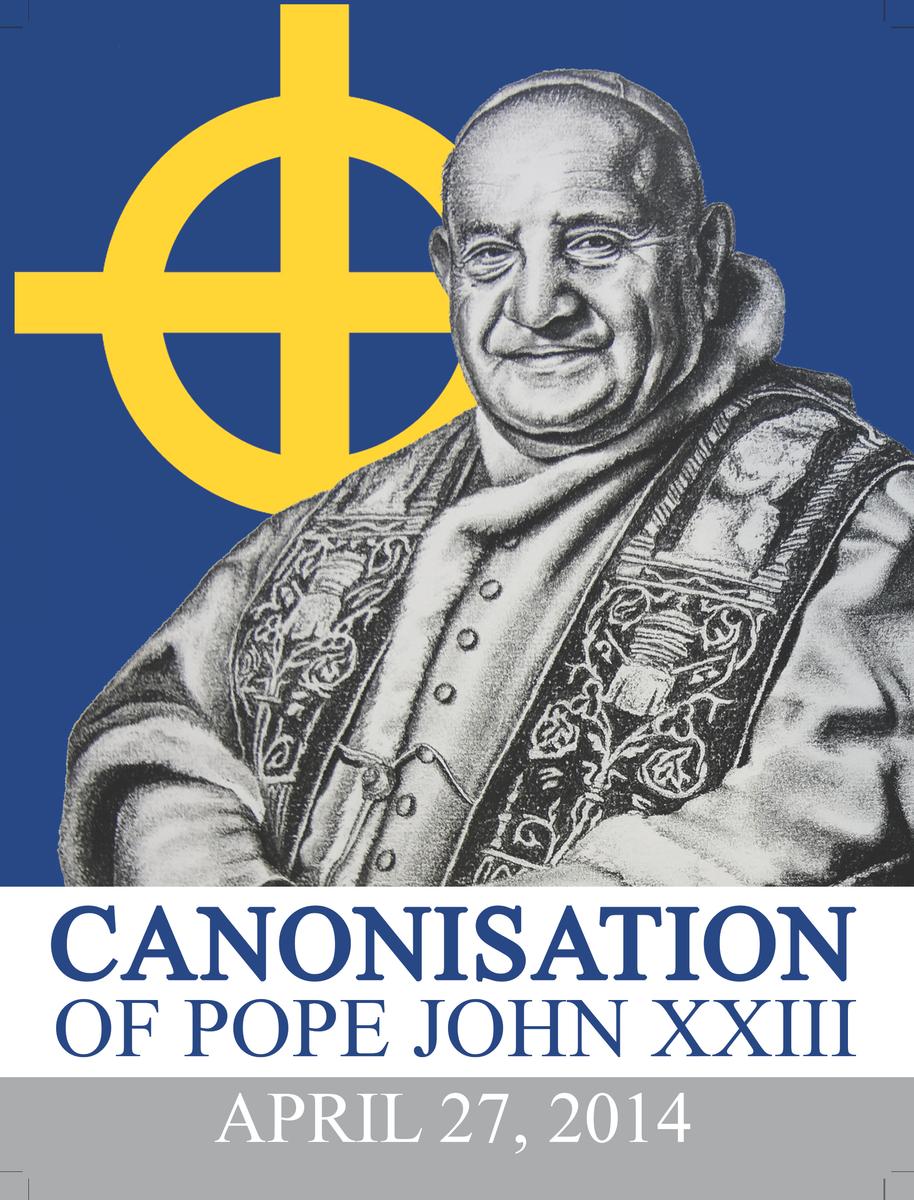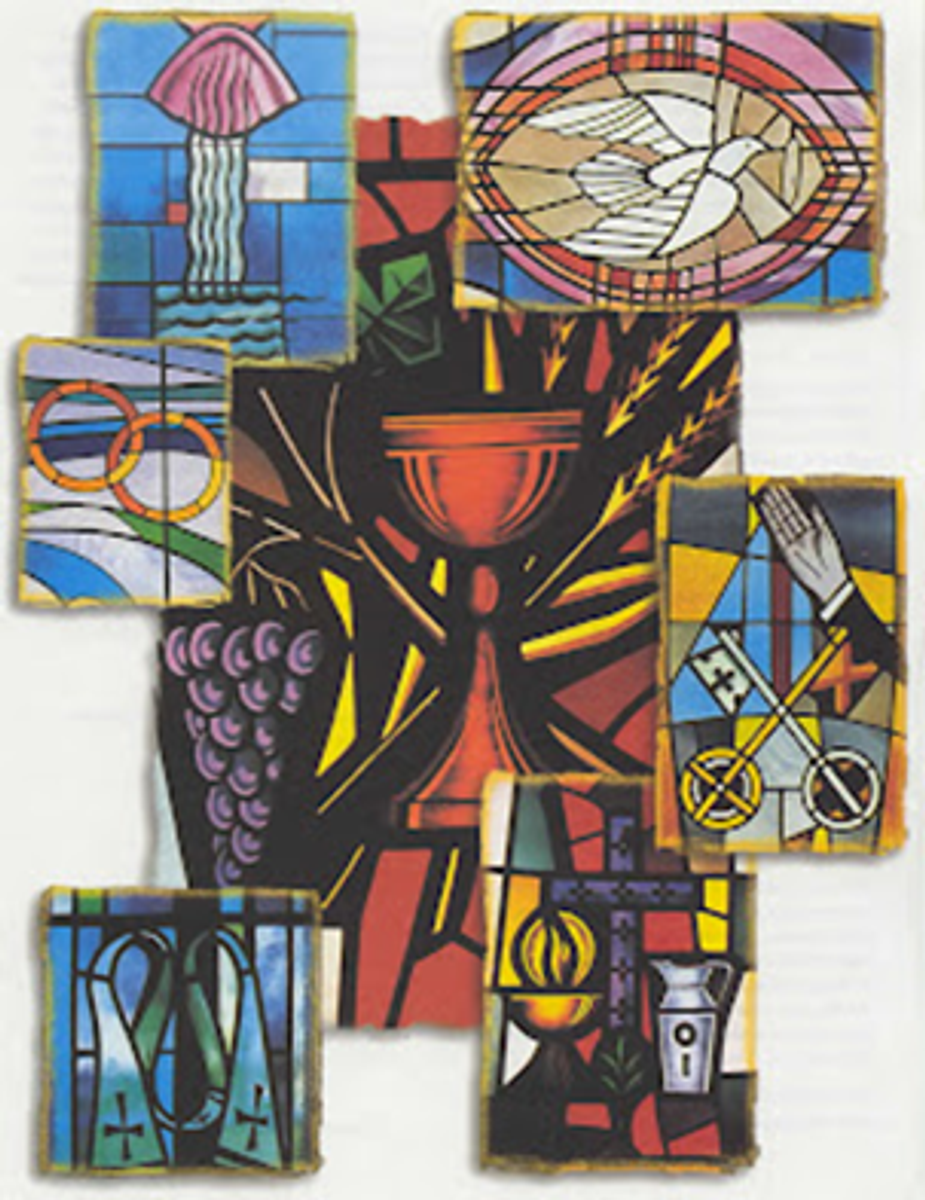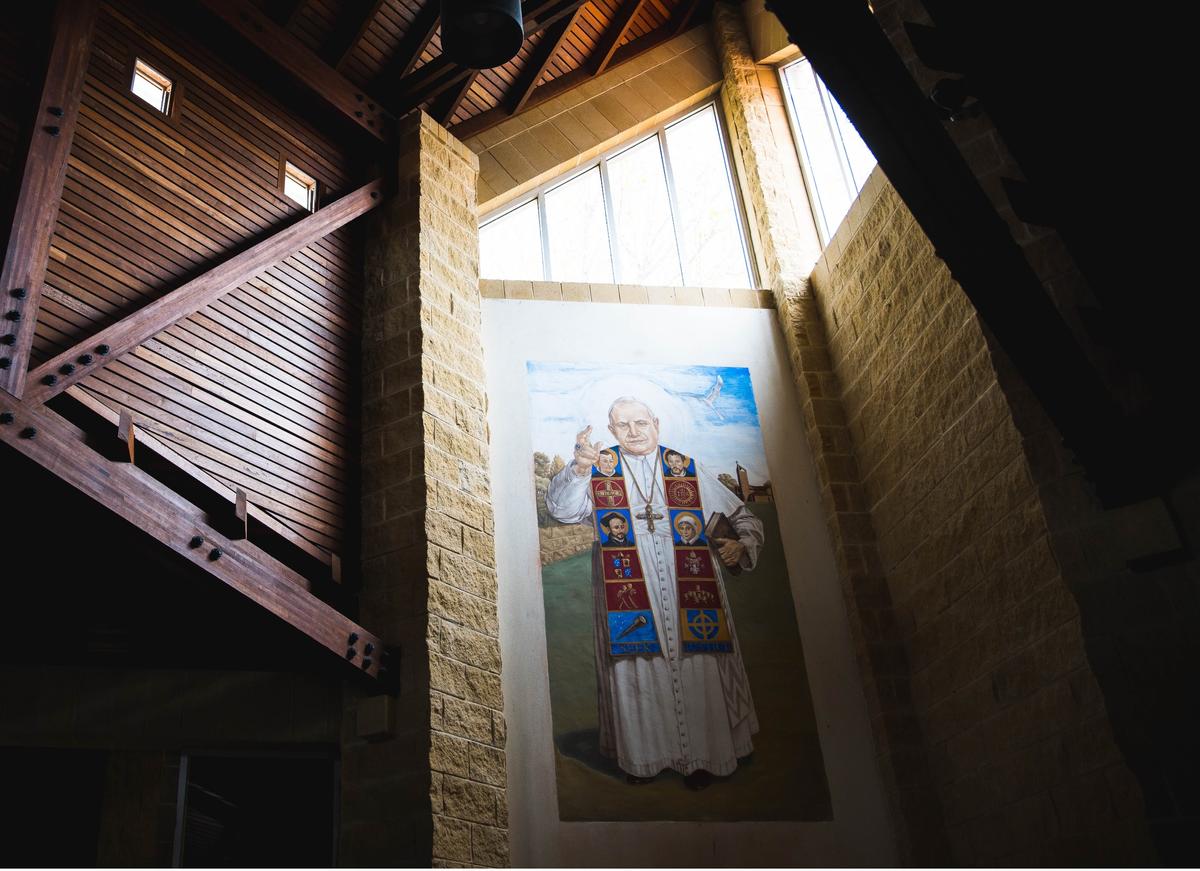Faith and Mission

Saturday, 27 April, marked a significant milestone in the Catholic calendar – the 10-year anniversary of the canonisation of Pope John XXlll, also known as the ‘Good Pope’. His humility, compassion and dedication to social justice continue to inspire us today.
Pope John XXIII played a pivotal role in the convening of the Second Vatican Council, a historic event that shaped the course of the Catholic Church in the 20th century. His vision for renewal and dialogue resonates with us here at the College and as part of a Synodal Church.
In contemplating Pope John XXlll, we are reminded of his Daily Decalogue – a set of resolutions he prayed with and reflected on each morning. These principles offer us all sound guidance on living a fulfilling and purposeful life:
- Live Positively: Embrace each day with positivity, focusing on progress rather than perfection.
- Take care: Pay attention to your appearance and conduct, showing courtesy and humility in all interactions.
- Find Happiness: Remember that happiness is attainable in this life, not just the next.
- Adapt: Be flexible and adaptable in the face of changing circumstances.
- Read wisely: Dedicate time to nourish your soul through good reading.
- Do Good Deeds: Perform acts of kindness without seeking recognition.
- Step Outside Your Comfort Zone: Challenge yourself to do things you don’t enjoy, with grace and humility.
- Make Plans: Set goals for yourself while remaining mindful of hasty decisions.
- Trust in Providence: have faith that God’s care extends to you in all circumstances.
- Live Fearlessly: Embrace beauty and goodness without succumbing to fear.
As we reflect on the memory of Pope John XXlll, let us embrace his teachings and strive to embody his spirit of kindness, humility, and courage in our lives.
Janeen Murphy
Deputy Principal Faith and Mission
Community Mass
Thank you to students in Loreto House who prepared our Liturgy this morning.
Next Friday, our ‘Community Mass’ will relocate to the Saint Louis Sports Centre and commence at 7:30am. This Mass will be dedicated to mothers and all who ‘mother’ in our community and beyond.
Community Mass Summary:
- Fridays in Term time
- 8:00am start – 8:30am finish
- College Chapel
Exception – Friday 10 May, Mass commences at 7:30 am, in the St Louis Sports Centre.
Sacrament program
Do you have a child in Years 3, 4 or 6?
Many students in these classes will be celebrating the sacraments with their families in various parishes over the coming weeks. We keep them in our prayer and look forward to receiving photos! Families are also reminded to send in copies of student sacrament certificates.
Sacrament program information from some of our local parishes, including City Beach, Claremont, Cottesloe, Doubleview, North Beach and Subiaco, is on the College website in the Parish Sacrament Programs section.
Further information:
- Your parish priest or Sacrament Coordinator
- The Archdiocesan website;
- Email Mary-Anne Lumley mary-anne.lumley@johnxxiii.edu.au 08 9383 0513.
John XXIII College and Pope Saint John XXIII
Ten years ago, on 27 April, the day of the canonisation of Pope Saint John XXIII in Rome, the College celebrated with the Eucharist, where Auxiliary Bishop Donald Sproxton presided and gave the homily. To mark the 10th anniversary of the canonisation, Bishop Don has given us permission to publish his homily, which is printed below.
The Eucharist began with the premiere performance of the College Song, with its opening line of ‘Seek Justice’. The composer is Loreto Sister, Deirdre Browne, who collaborated with students over a number of days, listening as they shared their ideas for a College Song. Some of the phrases that we know and love are direct quotes from students.
Phrases such as
a place of difference
a place of service and opportunity
our College where all feel at home
open the windows
leading from the heart in all we do
reflect the students’ vision for the College.
Serendipitously, Sr Deirdre Browne visited the College again this week. She was delighted to hear that, ten years on, students and staff have embraced the College Song and sing it with gusto at many liturgical celebrations.
Listen to an audio recording of the College Song.
Another gift to the College in April 2014, in honour of the newly canonised Pope Saint John XXIII, was the fresco painted in the Chapel. The artist, Professor Alan Pascuzzi, spent six weeks working on the fresco, including his careful observations of the local plants that are depicted. A feature of the fresco is the stole worn by John XXIII: it comprises recognisable images and symbols of the College mission and heritage.
Homily for the Canonisation of Pope Saint John XXIII
by the Most Reverend Bishop Donald Sproxton, Auxiliary Bishop of Perth
27 April 2014, John XXIII College
In a famous meeting by a Soviet Russian official and his wife with Pope John XXIII, after having shaken the Pope’s hand, the wife remarked in Russian, “He is one of us, look at his hands”. The Pope had such large hands, like those of a peasant worker. She was able to recognise something familiar in the man. We, of course, recognise someone else when we learn more about the man John XXIII. We see Christ shining through this man’s spirit, in his virtuous life and humanity.
I was recently asked by a priest why it was that John was being canonised. Was it for his accomplishments and great works? My answer: it seems to me it is because from his early years Angelo Roncalli had decided to become a holy man. He had chosen to set out on the path of humility. In the course of his journey, he became more human and loving. This accounts for him attaining the greatness that is beyond any other: becoming a saint.
This is more important than anything he may have achieved as a man, a priest, a bishop or a pope. The method was to follow the path of humility. He would learn the lessons of humility through his early life of poverty and the setbacks, the ups and downs of his career, through the dead ends that seemed to appear so often.
Angelo was quite unprepared for the mission he was sent to when he was appointed to be the Church’s representative in Turkey and Greece, then to Bulgaria. He had not been trained in the skills of diplomacy and would have accepted that he was naïve and not politically savvy. The Catholics in these countries were a minority and not considered very significant. There was marked discrimination against them in Turkey, sometimes aggressive oppression by the government of Ataturk. Angelo was mostly ignored by the Turkish and Greek governments.
The success of his time is these rather hostile countries is measured by the enduring friendships he made with other diplomats and the remarkable amount of pastoral work he engaged in, in this period. He was more the parish priest than the bishop-ambassador. He made friends through social gatherings, mostly by sharing a meal, hence Angelo’s rather large girth!
As the Second World War engulfed Europe, he transferred to Athens, and is recognised as having been able to save 24,000 Jews, many who were to eventually make their way to Palestine.
Angelo thought that he had reached the end of the road from a career point of view. So he was astounded when he was asked to go as Apostolic Nuncio to France. Some opposed his appointment, saying that he was not astute enough for such a complex situation. One opponent had called him ‘an old fogey’. One or two wanted him to fail. Their criticisms of his nomination may have been well founded, and yet he succeeded because of his amiability, charity and humanity.
His predecessor and some of the French bishops had been accused of collaborating with the Vichy government during the Nazi occupation. The de Gaulle government wanted them to be deposed.
Angelo succeeded in the negotiations with the government and the relationship with the Church was healed. The work he had done in Turkey, building friendships among the diplomats, became the key to his success in Paris. The onetime French Ambassador in Turkey was now an influential figure in de Gaulle’s government.
The recognition by the Vatican of his outstanding work in France came when at the age of seventy one he was made a cardinal and appointed to the Patriarchate of Venice. This was not a bad way to complete a life’s journey!
As Angelo looked back over his life, he was amazed at how the hand of God had shown itself. The hard times and dead ends were the times when he recognised the presence and power of God. He was amazed at the surprises too, not the least being his election as pope. His journey along the path of humility helped him to see and believe. ‘Blessed are they who have not seen me yet believe’. These words of the Risen Jesus certainly resonated with Angelo Roncalli.
Today is a wonderful day for the church everywhere, but most especially for John XXIII College. Your patron is one of the heavenly Communion of Saints. You can rely on his constant intercession as you move forward into a future of joys, accomplishments and challenges as individuals and a Catholic college.
My prayer is that as we come to know more about the life of John XXIII, we will be able to recognise the strong Spirit of Christ that gave him faith and trust, strength and courage. May we learn how to tread the same path of humility and obedience, becoming true images of Christ ourselves and disciples of the way of love.
© Most Reverend Donald Sproxton, 27 April 2014. Used with kind permission.




